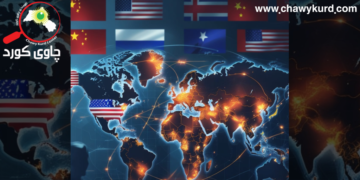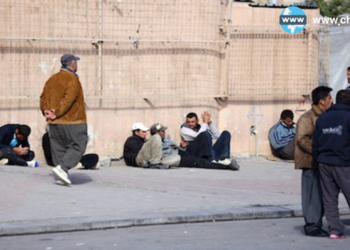In the depths of existence, there is a fundamental question: “Who am I?” The answer to this question, surprisingly, lies beyond the narrow boundaries of our individual bodies and “I”. Arne Nice, the Norwegian philosopher and father of deep ecology, made a simple but revolutionary appeal: In order to know ourselves, we must look at ourselves in the mirror of nature. The “self” that Nice speaks of is an expanded and universal “self”; a “self” is united with the rustling of a leaf, the roar of a river, the glory of a mountain, and the breath of any living creature. This is not just a novel view of nature, but a call for a revolution of consciousness, for understanding that we are part of a complex web of life, not grand and possessive. Popular environmental philosophy, or what Nice called “surface ecology,” is trapped in a “human-centered” framework. This vision protects the environment because it has “benefits” for humans: clean air for our lungs, safe water for our drinking, and forests for our industry and tourism. Here, nature is reduced to a set of “sources” that serve our desires. But deep ecology turns this equation upside down. He asks: Is a tree valuable only if we benefit from its fruit and shade? Is a river sacred only when it waters our land? The answer to “Nice” is a big NO. Every creature, every natural element, has its own “core value”. A rock on top of a mountain, a wildflower at the foot of a valley, or a lone wolf on the snow all have the right to exist and grow, regardless of how we humans see them or what we take from them. This is the principle of “bio-centric equality”; it is recognition that man, in spite of his intellectual faculties, is only one member of a great community of life.
This view takes on a much deeper and more tragic dimension when faced with the reality of the Kurdistan environment. Kurdistan, with its lofty mountains, deep valleys, rebellious rivers, and vast plains, is not just geography; rather, it is a living identity. The mountains of Kurdistan, as Nice saw the mountains of Norway, are not just piles of rock and sand, but great creatures worthy of respect. When the Kurdish people say “the mountains are our friends”, this is at its deepest level an expression of the same “self-knowledge” that Nice describes. The spiritual connection that existed between the man of this region and his environment was the best living example of deep ecology, even before the term was coined. Preserving a tree was not only for fuel, but also to honor the spirit and life of that tree. Not polluting a spring was not only for sanitation, but also recognition of the sacredness of the source of life. This is the indigenous wisdom that, without theory and philosophy, was embodied in everyday practice. At this time, the voice of Indian thinker and eco-feminism activist Vandana Shiva emerges as an essential complement to Nice’s philosophy. If “Nice” draws us the spiritual map of the relationship between man and nature, Shiva shows us the political and economic forces that threaten this relationship. Shiva speaks of “earth democracy”; A system in which every creature, from the smallest microbe to humans, has the right to live and participate in the system of life. He points directly to the “corporate occupation” of how they destroy the sovereignty of nations and the indigenous environment through the commodification of seeds, water and land. Shiva’s philosophy is that of defense. He believes that preserving a native seed is not only an agricultural act, but also a political and revolutionary act against the global capitalist system that seeks to homogenize the world and erase diversity.





























































